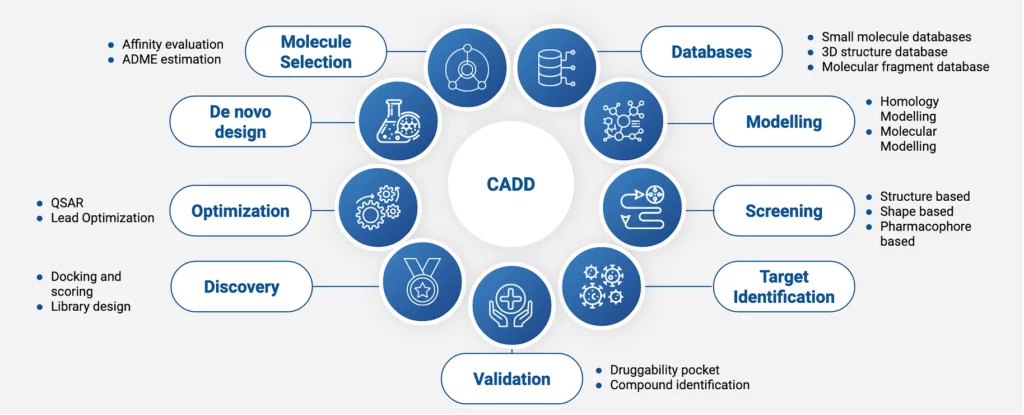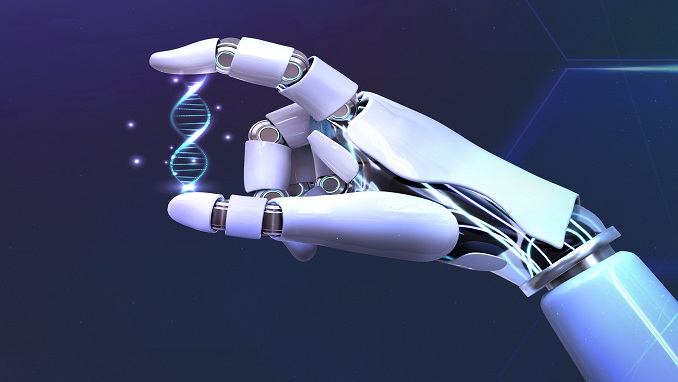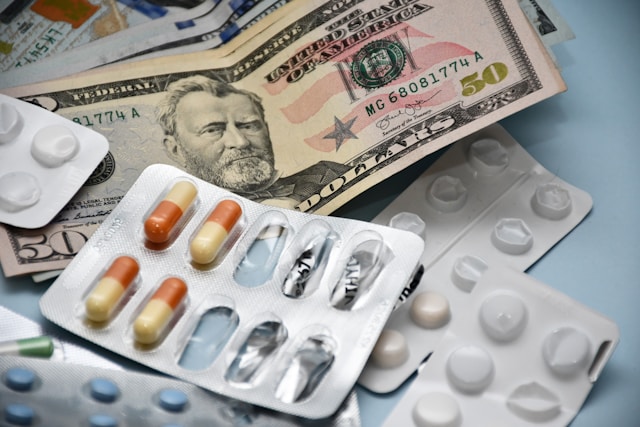Inventions like AI-developed drugs belong to the human inventor, says the Biotechnology Innovation Organization (BIO) in comments to the U.S. Patent and Trademark Office (USPTO).
The USPTO, which grants patents and registers trademarks in the U.S., has – like many of us – been exploring issues surrounding artificial intelligence and emerging technologies. In June 2022, the agency formed the AI/ET (Emerging Technologies) Partnership, to allow stakeholders to “share ideas, feedback, experiences, and insights on the intersection of intellectual property and AI/ET.” Now, the agency has been seeking input on patenting inventions like AI-developed drugs.
“[A]t the AI/ET Partnership meetings, the USPTO heard that new AI models are being used in drug discovery, personalized medicine, and chip design,” explained the USTPO in the request for comments. “[S]ome stakeholders have indicated that technologies using machine learning my be able to contribute at the level of a joint inventor in some inventions today.”
Bipartisan U.S. lawmakers are also looking at how to change laws to incentivize AI-related innovation.
The ultimate goal, says the USPTO, is to “ensure continued U.S. leadership in AI and other emerging technologies.”
What the biotech industry is saying about AI
As noted, BIO responded to the request for comments on May 15.
“The use of artificial intelligence and machine learning (together: ‘AI’) tools is becoming increasingly common, though not ubiquitous, among BIO’s member companies, who deploy this technology to assist in drug discovery, clinical trial design, manufacturing process improvements, and a range of other applications,” said Hans Sauer, BIO’s VP for Intellectual Property.
At this stage, BIO member companies see AI as a tool that “facilitates human invention-making. AI is not deemed to possess the agency, purpose, motivation, or the capacity for ideation that is required – at least under current law – to establish conception of an invention. Accordingly, the use of an AI tool, even one that significantly facilitated the conception of an invention, should not relegate a human inventor to the status of ‘part-inventor,’ co-inventor or non-inventor,” continues Sauer.
In other words: inventions, developed in conjunction with AI or not, belong to the human inventor.
The comments summarize five key points about the role of AI in biotech and ownership issues:
- AI is a tool. “AI is not deemed to possess the agency, purpose, motivation, or the capacity for ideation,” explains BIO’s Sauer.
- “Significant human involvement” is required in making AI-assisted inventions.
- The Patent Act does not describe how inventions are developed. It says “patentability shall not be negated by the manner in which the invention was made.” For example, a “novel” pharmaceutical compound” can come “into existence in any number of ways – through long and goal-directed pursuit; or through sheer luck or coincidence; or through brute force using semi-random combinatorial chemistry and high-throughput assays; or with the help of any number of tools and collaborators. Regardless of how it was made, the invention is then going to require the same amount of investment, time, partnering and licensing in order to be developed for regulatory approval and market-readiness,” continue BIO’s comments.
- Efforts to tally“inventive contributions” of AI and humans “would be unproductive and cumbersome.”
- “Current law on inventorship is adequate, for now. Questions of ownership are secondary and will be addressable after current questions about inventorship of AI-facilitated inventions are resolved.”
Why we need to talk about ownership of AI-developed drugs

AI could present a “$50 billion opportunity” for drug manufacturers, reports Bloomberg.
“Research firm Deep Pharma Intelligence estimates that investments in AI-driven drug discovery companies have tripled over the past four years, reaching $24.6 billion in 2022. In January of last year, Sanofi agreed to pay UK-based Exscientia Plc $100 million upfront, plus the potential for up to $5.2 billion in milestone payments to research novel medicines and develop up to 15 candidates in oncology and immunology with the use of AI systems,” continues Bloomberg.
Other biotech companies including Bayer, Roche, and Takeda are exploring drug discovery with AI, continues the report. (All three companies, as well as Sanofi, are BIO members.)
The comment period closed on Monday, May 15. The USPTO will now consider “whether the current state of the law provides patent protection” for innovation including AI-developed drugs.
More reading: How we’re expanding cancer treatments with generative AI




